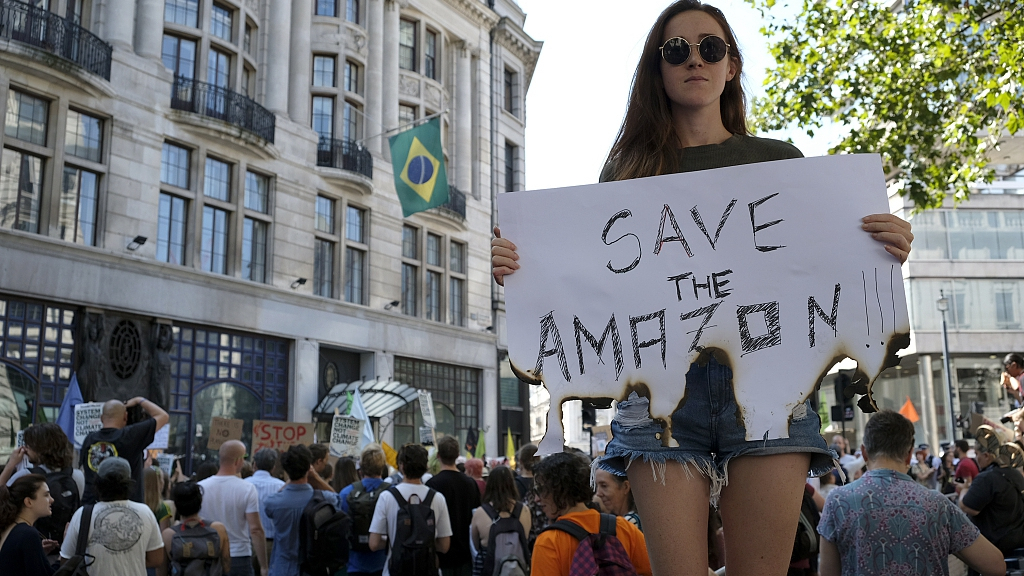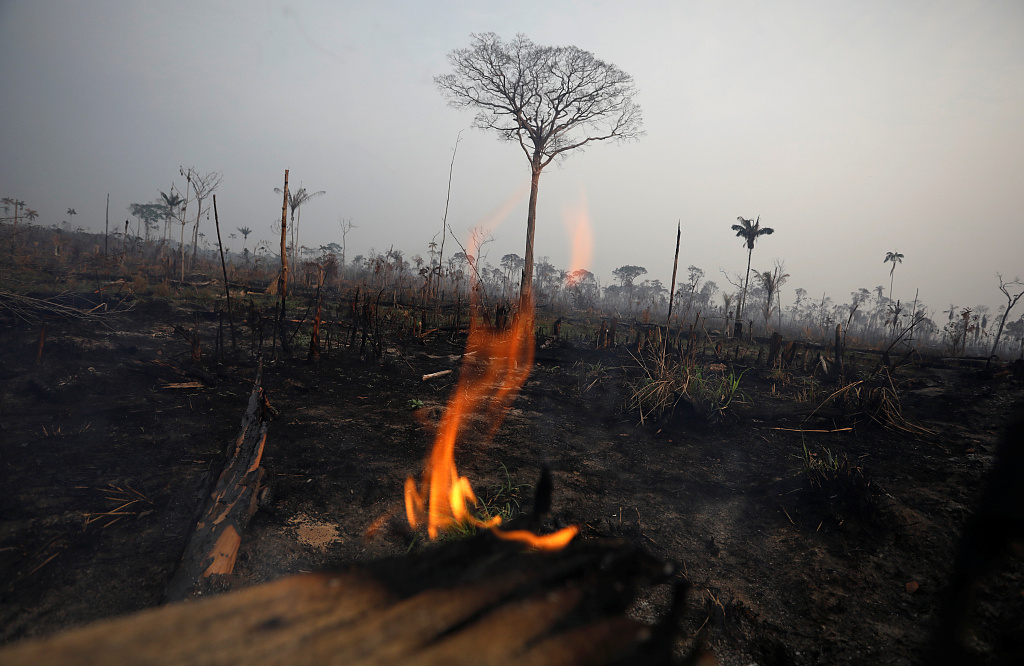

Editor's note: Tom Fowdy is a British political and international relations analyst and a graduate of Durham and Oxford universities. He writes on topics pertaining to China, the DPRK, Britain and the United States. The article reflects the author's opinions, and not necessarily the views of CGTN.
The Amazon rainforest is being assaulted with a record number of fires brought about by illegal deforestation. The forest, which is perhaps the largest expanse of woodland and natural space in the entire world, is a critical organ of environmental and ecological stability, essential for the well-being of all living things. Enabled by the destructive policies of Brazil’s right-wing leader Jair Bolsonaro, the growing pace of devastation has sparked global concern, with leaders in Europe calling out the decision-making of the country’s president and Angela Merkel even proposing to scrap the new EU-South America trade agreement. Undoubtedly, it will be a topic of dominant conversation at the upcoming G7 Summit as leaders wrestle to try and persuade Brasilia to stop the crisis.
This is a matter the world cannot ignore. If the Amazon rainforest is destroyed, there will be catastrophic consequences for all humanity; one does not have to be a militant climate activist to recognize that. The leadership of Brazil, following in the footsteps of the American president, have essentially sacrificed any ethical concern for the environment in pursuit of aggressively reversing the country’s economic decline. In doing so, they will have made what was an already bad problem, catastrophically worse. Given this, if we cannot speak up against this and demand action from Bolsonaro, then we are cursing future generations with impending catastrophe.
The Amazon rainforest is not a resource that can be squandered away for economic growth and corporate profit. Its value to the mere essentials of life is far outweighing such. Brazil, of course, is not a wealthy country. This has long made the degradation of its lush and seemingly unlimited span of forest a tempting target for financial gains. For decades, the country has battled endemic corruption and exploitation from businesses around the world which has saw segments of the rainforest carved up for agriculture and other incentives.

A tract of Amazon jungle burns in Boca do Acre, Amazonas state, Brazil August 24, 2019. /VCG Photo
Since the 1970s, 20 percent of the forest’s original mass has been destroyed (792,000 sqkm), with current rates seeing over 7000 or so square kilometers of it diminished every year. However, politics in the country is now actively working against it. Last year, Bolsonaro was elected in Brazil and was touted as the “Trump of Latin America” – he reflects the U.S. president in that he is offensive, brash and highly reactionary towards “progressive” trends.
Such has included of course, open contempt towards environmentalism and preference for the interests of businesses over ecological concerns, the U.S. President believing man made climate change is a hoax. Subsequently, seeing the White House teared up environmental regulations and withdraw from a global climate treaty, Bolsonaro immediately rolled back restrictions on deforestation, reduced criminal penalties for doing so, let enforcement slack and politically targeted environmental activists. With Brazil’s economy having also been stagnant for years, he believed it was somehow a worthwhile price to pay for prosperity.
Except that it isn’t, and there is no price that can possibly equal the future of this planet. Now, there are a record number of fires around the Amazon rainforest as deforestation efforts have been allowed to run riot, combined with the calamitous effects of the country’s dry season. Suddenly, the forest is receding at its fastest pace in a decade, sparking a global outcry. The demise of the forest will not only hasten climate change by accelerating the amount of carbon dioxide in the atmosphere, but also upset the delicate balance of the global ecosystem and drive species to extinction. In every scenario, mankind loses.
In this case, people need to pay attention to this and speak out accordingly. Although some in Brazil may feel strongly it is their own sovereign right to use their land for their own economic benefit, this is not a local issue but a global issue due to the critical function which the Amazon plays for the entire world. Every single effort must be made accordingly to lobby the Brazilian leadership to take action against deforestation, prevent illegal fires and in turn educate people regarding the consequences of this.
(If you want to contribute and have specific expertise, please contact us at opinions@cgtn.com.)

Copyright © 2018 CGTN. Beijing ICP prepared NO.16065310-3
Copyright © 2018 CGTN. Beijing ICP prepared NO.16065310-3